When it comes to the luxury hatchback segment, the Audi A3 Sportback and the Lexus LBX represent two distinct philosophies. Audi's timeless commitment to performance and technology meets Lexus's refined approach to hybrid innovation and sustainable driving. Let's dive into the details, comparing their technical aspects, innovations, and overall driving experiences.
Audi A3 Sportback vs Lexus LBX - Differences and prices compared
Compare performance (400 HP vs 136 HP), boot space and price (27000 £ vs 28300 £ ) at a glance. Find out which car is the better choice for you – Audi A3 Sportback or Lexus LBX?
Design and Interior Comfort
The Audi A3 Sportback boasts a sleek, aerodynamic design typical of Audi’s styling cues. Its bold stance and sharp lines not only enhance its aesthetic appeal but also contribute to aerodynamics. Inside, the A3 offers a well-crafted cabin with high-quality materials, a cutting-edge infotainment system, and plenty of room for five passengers. The trunk capacity ranges from 282 to 380 liters, depending on the configuration, providing ample space for luggage and daily needs.
On the other hand, the Lexus LBX, classified as an SUV, provides a higher driving position, contributing to better visibility on the road. With a more rugged yet refined design, it combines the practicality of an SUV with the luxury that Lexus is known for. The LBX seats four comfortably and provides a trunk capacity of up to 332 liters, making it a versatile choice for urban and weekend adventures.
Powertrain and Performance
Under the hood, the Audi A3 Sportback offers a range of powertrains, including petrol, mild hybrid electric vehicles (MHEV), and diesel options, with power outputs ranging from 116 to 400 HP. It accelerates from 0-100 km/h in as little as 3.8 seconds in its high-performance variants. The drive options include both front-wheel and all-wheel drive, paired with a manual or an automatic transmission, including a dual-clutch option for those seeking responsiveness.
In contrast, the Lexus LBX comes equipped with a full hybrid powertrain, boasting a singular focus on efficiency with a total output of 136 HP. The acceleration from 0-100 km/h takes between 9.2 to 9.6 seconds, which is commendable for a hybrid but not quite as vigorous as the A3's performance. Lexus employs a Continuously Variable Transmission (CVT), emphasizing smoothness and fuel economy over outright speed.
Efficiency and Environmental Impact
When it comes to fuel efficiency, the Lexus LBX shines brightly. Positioned as an eco-friendly option, it averages fuel consumption figures between 4.5 to 4.8 L/100km and emits between 102 to 109 g/km of CO2. This makes it a strong contender for those looking to minimize their carbon footprint while enjoying a luxury driving experience.
The Audi A3 Sportback, while slightly less efficient, provides a broad range of consumption figures across its engine lineup, ranging from 4.8 L/100km for the most efficient models to 9.3 L/100km for the high-performance versions. Its CO2 emissions range between 120 to 211 g/km, catering to those who crave performance but are also conscious of environmental impact.
Innovations and Technology
The A3 Sportback is equipped with some of the latest automotive technologies, including a fully digital cockpit, enhanced connectivity options, and driver assistance systems that elevate both safety and convenience. Features like adaptive cruise control, lane assist, and park assist provide an advanced level of assistance, making every drive not just pleasurable but also secure.
Lexus, known for its reliability and technology, also includes an impressive array of innovations in the LBX. The vehicle is embedded with Lexus Safety System+ which encompasses advanced safety features designed to prevent collisions. Additionally, the infotainment system offers seamless smartphone integration and access to navigation, ensuring that technology enhances driving enjoyment.
Conclusion
Choosing between the Audi A3 Sportback and the Lexus LBX ultimately depends on individual preferences. If you prioritize performance, customization, and dynamic driving experiences, the Audi A3 Sportback is hard to beat. However, if a sustainable, hybrid lifestyle is at the forefront of your automotive choices, the Lexus LBX emerges as an appealing option with its innovative powertrain and advanced safety features.
Both vehicles embody their respective brands’ core values, serving distinct audiences looking for luxury and quality in vastly different forms. In this matchup, each car has its strengths, making this an exciting comparison for enthusiasts and everyday drivers alike.
Here’s where it gets real: The technical differences in detail
Costs and Efficiency:
Looking at overall running costs, both models reveal some interesting differences in everyday economy.
Audi A3 Sportback has a minimal advantage in terms of price – it starts at 27000 £ , while the Lexus LBX costs 28300 £ . That’s a price difference of around 1277 £.
Fuel consumption also shows a difference: Audi A3 Sportback manages with 1.10 L and is therefore convincingly more efficient than the Lexus LBX with 4.50 L. The difference is about 3.40 L per 100 km.
Engine and Performance:
Under the bonnet, it becomes clear which model is tuned for sportiness and which one takes the lead when you hit the accelerator.
When it comes to engine power, the Audi A3 Sportback has a clearly edge – offering 400 HP compared to 136 HP. That’s roughly 264 HP more horsepower.
In acceleration from 0 to 100 km/h, the Audi A3 Sportback is significantly quicker – completing the sprint in 3.80 s, while the Lexus LBX takes 9.20 s. That’s about 5.40 s faster.
In terms of top speed, the Audi A3 Sportback performs evident better – reaching 237 km/h, while the Lexus LBX tops out at 170 km/h. The difference is around 67 km/h.
There’s also a difference in torque: Audi A3 Sportback pulls clearly stronger with 500 Nm compared to 185 Nm. That’s about 315 Nm difference.
Space and Everyday Use:
Cabin size, boot volume and payload all play a role in everyday practicality. Here, comfort and flexibility make the difference.
Both vehicles offer seating for 5 people.
In curb weight, Lexus LBX is minimal lighter – 1280 kg compared to 1360 kg. The difference is around 80 kg.
In terms of boot space, the Audi A3 Sportback offers somewhat more room – 380 L compared to 332 L. That’s a difference of about 48 L.
In maximum load capacity, the Audi A3 Sportback performs slight better – up to 1100 L, which is about 106 L more than the Lexus LBX.
When it comes to payload, Audi A3 Sportback slight takes the win – 480 kg compared to 475 kg. That’s a difference of about 5 kg.
Who wins the race in the data check?
The Audi A3 Sportback holds a decisive overall lead in the objective data comparison.
This result only shows which model scores more points on paper – not which of the two cars feels right for you.
Costs and Consumption
View detailed analysis
Engine and Performance
View detailed analysis
Dimensions and Body
View detailed analysis
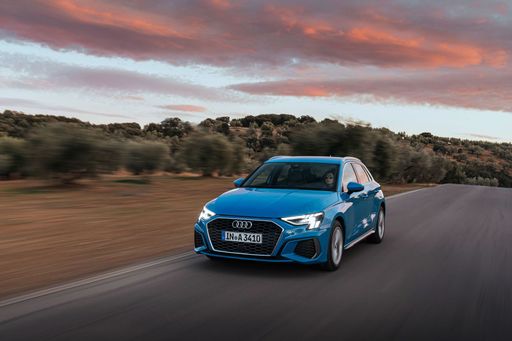
Audi A3 Sportback
Audi A3 Sportback
The Audi A3 Sportback wraps premium materials and crisp German design into a practical hatchback package that makes daily driving feel smart rather than showy. It’s nimble in the city, composed on longer trips, and carries just enough swagger to satisfy buyers who want quality without shouting about it.
details
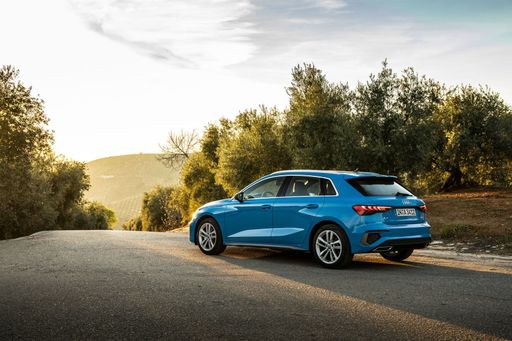
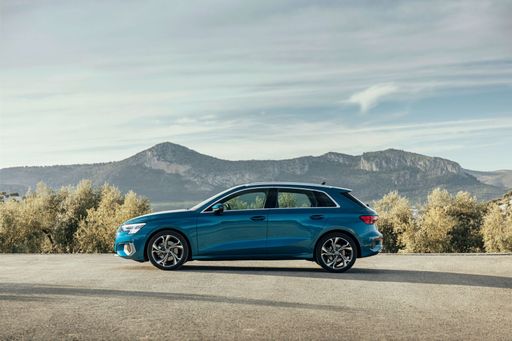
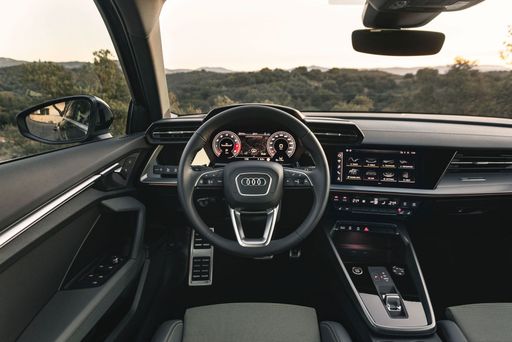
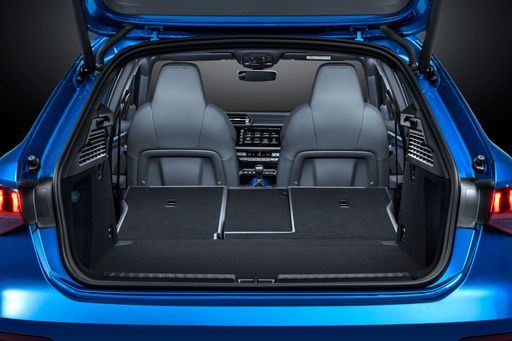
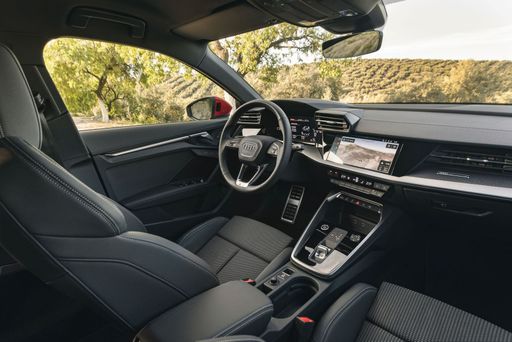
Lexus LBX
The Lexus LBX wraps premium touches and a surprisingly spacious cabin into a compact crossover that’s perfectly at home in town or heading out on longer drives. It wears the badge with quiet confidence, serving up a refined ride and clever packaging for buyers who want Lexus polish without shouting for attention.
details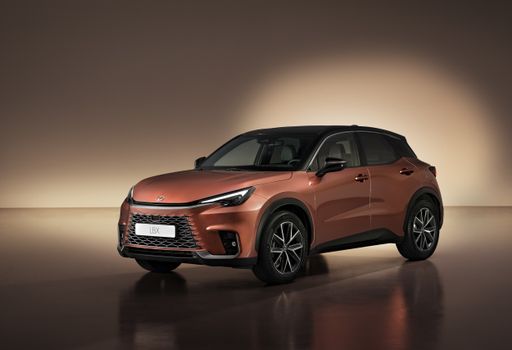
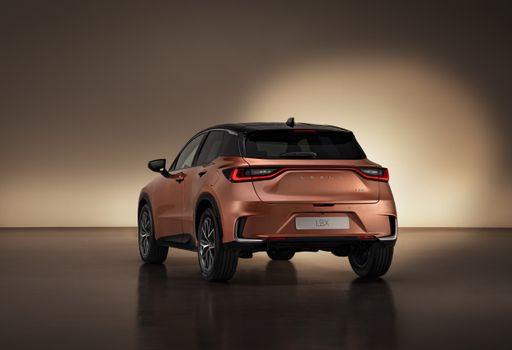
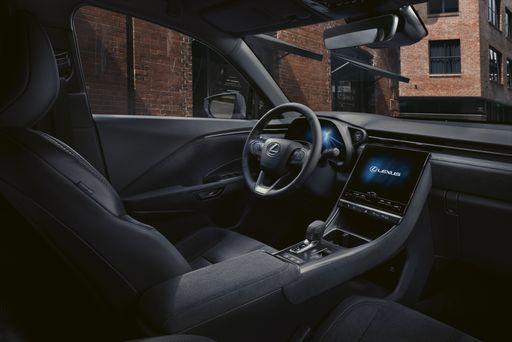
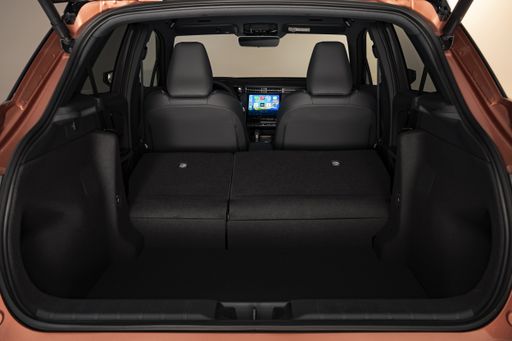
Costs and Consumption |
|
|---|---|
|
Price
27000 - 56600 £
|
Price
28300 - 40000 £
|
|
Consumption L/100km
1.1 - 9.3 L
|
Consumption L/100km
4.5 - 4.8 L
|
|
Consumption kWh/100km
-
|
Consumption kWh/100km
-
|
|
Electric Range
134 - 141 km
|
Electric Range
-
|
|
Battery Capacity
19.70 kWh
|
Battery Capacity
-
|
|
co2
25 - 211 g/km
|
co2
102 - 110 g/km
|
|
Fuel tank capacity
40 L
|
Fuel tank capacity
36 L
|
Dimensions and Body |
|
|---|---|
|
Body Type
Hatchback
|
Body Type
SUV
|
|
Seats
5
|
Seats
5
|
|
Doors
5
|
Doors
5
|
|
Curb weight
1360 - 1685 kg
|
Curb weight
1280 - 1365 kg
|
|
Trunk capacity
280 - 380 L
|
Trunk capacity
255 - 332 L
|
|
Length
4352 - 4353 mm
|
Length
4190 mm
|
|
Width
1816 - 1851 mm
|
Width
1825 mm
|
|
Height
1441 - 1470 mm
|
Height
1560 mm
|
|
Max trunk capacity
1100 L
|
Max trunk capacity
992 - 994 L
|
|
Payload
410 - 480 kg
|
Payload
455 - 475 kg
|
Engine and Performance |
|
|---|---|
|
Engine Type
Petrol, Petrol MHEV, Diesel, Plugin Hybrid
|
Engine Type
Full Hybrid
|
|
Transmission
Manuel, Automatic
|
Transmission
Automatic
|
|
Transmission Detail
Manual Gearbox, Dual-Clutch Automatic
|
Transmission Detail
CVT
|
|
Drive Type
Front-Wheel Drive, All-Wheel Drive
|
Drive Type
Front-Wheel Drive, All-Wheel Drive
|
|
Power HP
116 - 400 HP
|
Power HP
136 HP
|
|
Acceleration 0-100km/h
3.8 - 10.1 s
|
Acceleration 0-100km/h
9.2 - 9.6 s
|
|
Max Speed
225 - 237 km/h
|
Max Speed
170 km/h
|
|
Torque
220 - 500 Nm
|
Torque
185 Nm
|
|
Number of Cylinders
4 - 5
|
Number of Cylinders
3
|
|
Power kW
85 - 294 kW
|
Power kW
100 kW
|
|
Engine capacity
1498 - 2480 cm3
|
Engine capacity
1490 cm3
|
General |
|
|---|---|
|
Model Year
2025
|
Model Year
2025
|
|
CO2 Efficiency Class
D, F, E, G, B
|
CO2 Efficiency Class
C
|
|
Brand
Audi
|
Brand
Lexus
|
What drive types are available for the Audi A3 Sportback?
The Audi A3 Sportback is offered with Front-Wheel Drive or All-Wheel Drive.
